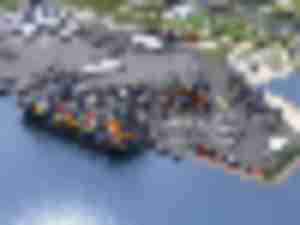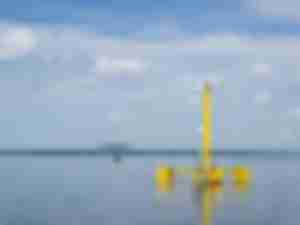Takeaways from Laurentia’s demise
Though Canada’s federal government earlier this summer firmly rejected the Port of Quebec’s dream of building a second container port on the St. Lawrence River on the basis of serious environmental issues, there were big question marks already on the commercial viability of the Laurentia project.
An Urgent Upgrade: 3G’s Sunset and the Dawn of 5G
Wireless network technology is continuing to evolve, and members of the transportation industry who have come to rely on 3G networks for telematics in their connected vehicles have to consider how they’re going to keep up, lest they get left behind.
Union Pacific discloses $7 billion for “share repurchases”
Under fire from importers and exporters for service cutbacks and from rail employees for lay-offs and followed by a seven-day rail service suspension from West Coast ports in July, Union Pacific disclosed that it has accumulated approximately $7 billion for “share repurchases.”
Proposed APM container terminal at Port of Plaquemines could pose challenge to Port of New Orleans
In May, the Port of Plaquemines (located South of New Orleans) and APM Terminals (APMT) announced a plan to locate and build a state-of-the-art container terminal that can handle the largest container ships.
On the path to decarbonize shipping
Reducing CO2 emissions and achieving a sustainable maritime industry
Opinion: Proposed A’s Ballpark and Condo Development Threatens Future of Port of Oakland
Since first conceived, the Oakland A’s plan to build condominiums and a new ballpark at the Port of Oakland’s Howard Terminal has sounded alarms for import/export stakeholders at the West Coast’s third-busiest port.
POLB’s Hacegaba says UP rail service suspension from West Coast could be positive
The decision by the Union Pacific (UP) railroad to suspend service from West Coast ports to Chicago for one week could be positive, according to Noel Hacegaba, deputy executive director, Port of Long Beach.
Fit for 55 package – analysing the impact on European industry
On Wednesday 14 July the European Commission published the Fit for 55 package reshaping the European emissions trading landscape. The proposal covers all aspects of the existing system, including the overall amount of allowances supplied into the market (“cap”), the allocation of free certificates and the functioning of the Market Stability Reserve. At the same time, it introduces sweeping reforms, by expanding emissions trading to the maritime sector, introducing a Carbon Border Adjustment Mechanism (CBAM), and proposing a new trading scheme for the road transport and buildings sectors.
LA’s Seroka expects lead In US import market share will continue
The Port of Los Angeles expects that it and other West Coast ports will maintain their lead in import market share over other U.S. ports, according to Gene Seroka, executive director, Port of Los Angeles.
New England Aqua Ventus will launch first US floating offshore wind turbine In 2023/24
New England Aqua Ventus expects to launch the first U.S. floating wind turbine into the Gulf of Maine in 2023/24, according to Dr. Habib Dagher, founding executive director of the University of Maine’s Advanced Structures and Composites Center (ASCC).
© Copyright 1999–2025 American Journal of Transportation. All Rights Reserved










